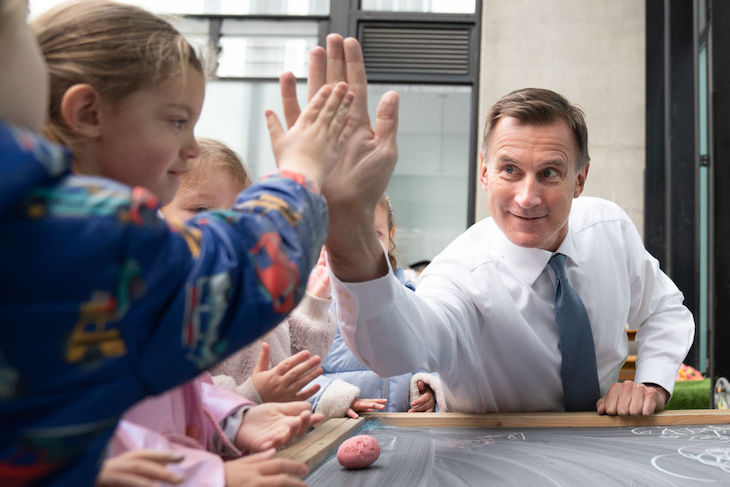Jeremy Hunt has announced plans to extend the 30 hours a week of ‘free’ childcare for three and four year olds to include babies as young as nine-months old. This expansion of childcare provision has been hailed by the Chancellor as a measure to allow mothers to return to employment if they want to; it will also, according to Hunt, help boost the economy. But has anyone paused to think about the impact on the children themselves – and families?
The truth is that Hunt’s proposed changes aren’t a win for mothers, children, and families as a whole. Why? Because the childcare plans suggest that a mother’s worth comes from their economic output and active participation in the workforce. It also falsely assumes that children are better off with hired help than a loving parent at home. In short, mothers’ preferences and baby bonding get sacrificed in the name of economic growth, and babies and toddlers get designated as ‘barriers to work’ that mothers need to overcome.
The suggestion that Hunt’s measures enable choice for mothers should fool nobody
When Hunt proclaims childcare that prevents women from working is ‘damaging the economy’, he epitomises the worst of today’s anti-natalist sentiments.

Britain’s best politics newsletters
You get two free articles each week when you sign up to The Spectator’s emails.
Already a subscriber? Log in






Comments
Join the debate for just £1 a month
Be part of the conversation with other Spectator readers by getting your first three months for £3.
UNLOCK ACCESS Just £1 a monthAlready a subscriber? Log in